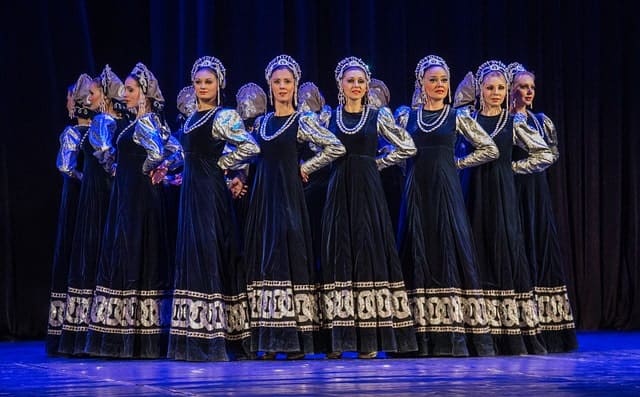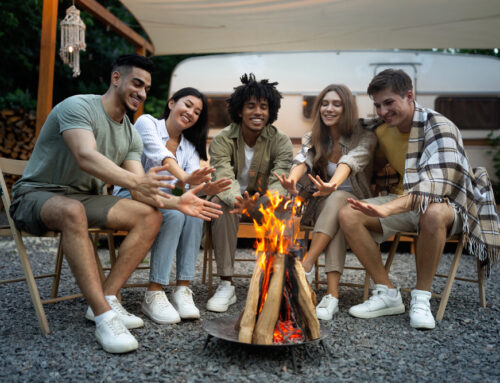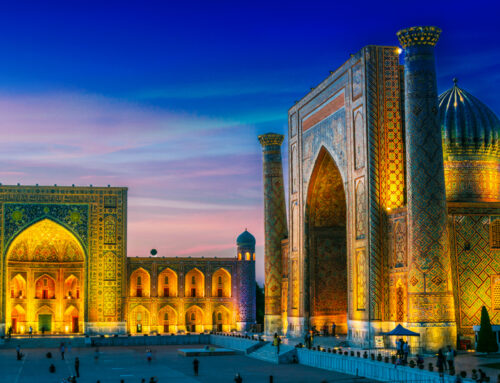Interesting and Suprising Cultural Traditions of Russia

Traditions Of The Peoples of Russia That Will Surprise You
Traditions and customs help to understand the culture of peoples and feel the spirit of the region or region. Our selection contains the most unusual, funny, and frightening traditions. Some of them are no longer practiced and have remained only in the memory of old-timers, others have survived to the present day, and still, others have changed almost beyond recognition. Now it is difficult to believe that such unusual beliefs in the old days were practiced on the territory of our country.

Round dance traditions of the Udmurt Republic
In the northern regions of Udmurtia, the foundations of traditional culture have survived to this day: a variety of song folklore and game round dances-processions. During the winter period (from Christmas to Epiphany), young people gathered in houses for paired round dances, young people and girls chose a partner and even played “kissing” games. During such round dances, folk songs about marriage were sung.
In the warm season, they performed “circular” round dances in open spaces, in the center of the village, or in a meadow. All residents took part in such round dances, in total there could be five or six round dance circles if the village was large. In addition to circular, there were also round dances, processions along the main street. Summer round dance songs were dedicated to the good harvest and the well-being of the villagers.
Swimming in saltwater among the peoples of the North Caucasus
Among the Nogai and Karagash people, the first forty days after birth were considered an important stage in a person’s life. In order for the baby to become stronger and stronger as soon as possible, it was necessary to bathe him in salted water every day. According to ancient belief, this helped the child’s body “harden”. The people of the North Caucasus even had a special name for a baby who is more than forty days old – “a child who came out of forty”. In addition to bathing, it was important to have time to give a name to the newborn, put him in a shirt, put him in a cradle with a special ritual, and also shave off the womb hair.
Wedding festivities of the Kuban Cossacks
It is customary for the Kuban Cossacks to celebrate a wedding magnificently and arrange festivities for three days. One of the amusing traditions of this holiday is the dressing up of newlyweds’ friends in “mummers”.
From among the guests, the most cheerful and perky are chosen – the guy changes into a girl, and the girl – into a guy, and they portray the bride and groom. In this form, young people travel to the city center or village, visit attractions, go to the market to buy gifts for the parents of the newlyweds.
Then the “newlyweds” return to their parents, present them with gifts, put them in a decorated cart, and roll them through the streets. Somewhere in the middle of the journey, the cart must be turned over to make the guests funnier.
Building rituals among the Permian peoples
Among the traditional peoples of the Perm region – the Udmurts, Komi-Zyryans, Komi-Permians – the construction of a new house was surrounded by a cycle of rituals, starting with the choice of a place for construction.
The place for the future dwelling, many peoples of this region trusted to choose only a sorcerer. The Komi-Zyryans got the hang of choosing a place for a house on their own – with the help of ants. The latter, together with the garbage from the anthill, were placed in a birch bark box and left overnight at the proposed place of the future house.
It was believed that on land suitable for construction, ants remained in a box and brought twigs and sticks into it. If the ants left the box and took all the trash with them, the place was declared unfit for habitation.
“Cold stove” of the peoples of Tatarstan
In Tatar villages, the following custom is still observed: from the moment of death and three days after it is forbidden to cook food in the house of the deceased. It used to be said that you need to “keep the oven cold” – but this prohibition actually applied to all dishes and not just those that were cooked in the oven. By tradition, on these difficult days, neighbors take turns inviting the family of the deceased to have lunch and dinner.
“Fun” of the deceased among the northern peoples of Russia
The Vepsians living on the territory of Karelia and many other indigenous northern peoples had an unusual tradition of “merrymaking the dead”. The funeral of these people could be easily confused with a holiday: people dressed up in their best clothes sang merry songs and danced. In ancient times, it was believed that such a burial rite was due to those who died at a young age, did not have time to marry and “partake” during their lifetime.
Seeing offspring in the Voronezh region
The carnival procession on the Sunday following the Orthodox holiday of Trinity is still being organized in the village of Okino, Voronezh Region. The figure of a mermaid horse, made of poles and hemp fiber and decorated with multi-colored ribbons, the participants of the procession lead through the streets and collect alms from all yards, passers-by, and passing cars. You could book your stay before visiting there online and enjoy the living and traditions.
The costumed mermaid horse symbolizes the end of spring and the onset of summer, and gifts are needed to appease him and ensure his well-being and a good harvest. During the procession, traditional folk songs are sung, and at the end of the holiday, the mermaid is taken outside the village and dismantled, after which the residents gather for a festive meal.
****************************
About The Author: Julien Chbib is the founder of Julius Homes His interest in hiking, skiing, and adventure holidays made him bring together the choicest accommodations around the globe to make holidays relaxing and comfortable.




